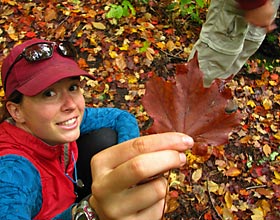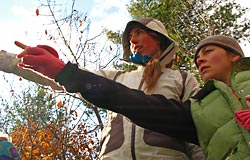 We begin with a wisdom of natural places. Field Naturalists and Ecological Planners (FNEPs) pursue coursework in geology, hydrology, botany, zoology, soil science and other essentials of ecology and conservation. From this foundation, however, we only begin to understand natural places, their riddles and their problems.
We begin with a wisdom of natural places. Field Naturalists and Ecological Planners (FNEPs) pursue coursework in geology, hydrology, botany, zoology, soil science and other essentials of ecology and conservation. From this foundation, however, we only begin to understand natural places, their riddles and their problems.
Next is synthesis. FNEPs recognize how the components of a landscape – from bedrock to treetops, from climate to human influences – combine into dynamic forces that define and govern any ecosystem. It is an essential perspective, but not quite complete.
Success requires thought and communication. To our knowledge of ecosystems and human nature we bring open minds and objective analysis to develop solutions that work for people and places. And with eloquent writing and effective visual and verbal skills we bring clear solutions to professionals and the general public.
Those three elements constitute the strategy and dexterity of a Field Naturalist or an Ecological Planner.
How We Study
Our programs emphasize collaboration and mutual support. Cohorts of gradulate students, usually no more than eight per year, form bonds in learning and for lasting professional relationships. Although students often work alone in remote places for their graduate research, they learn together, socialize and often share housing during the academic year.
Students develop a masters project in consultation with a sponsoring conservation organization – The Nature Conservancy, the National Park Service, a state government or a municipal parks department, for example. Field research spans the summer of the first academic year and portions of the second fall semester. The product of each student's graduate work includes a professional report for the sponsoring organization, written academic reflections, and a journal publication or article in the popular mass media.

